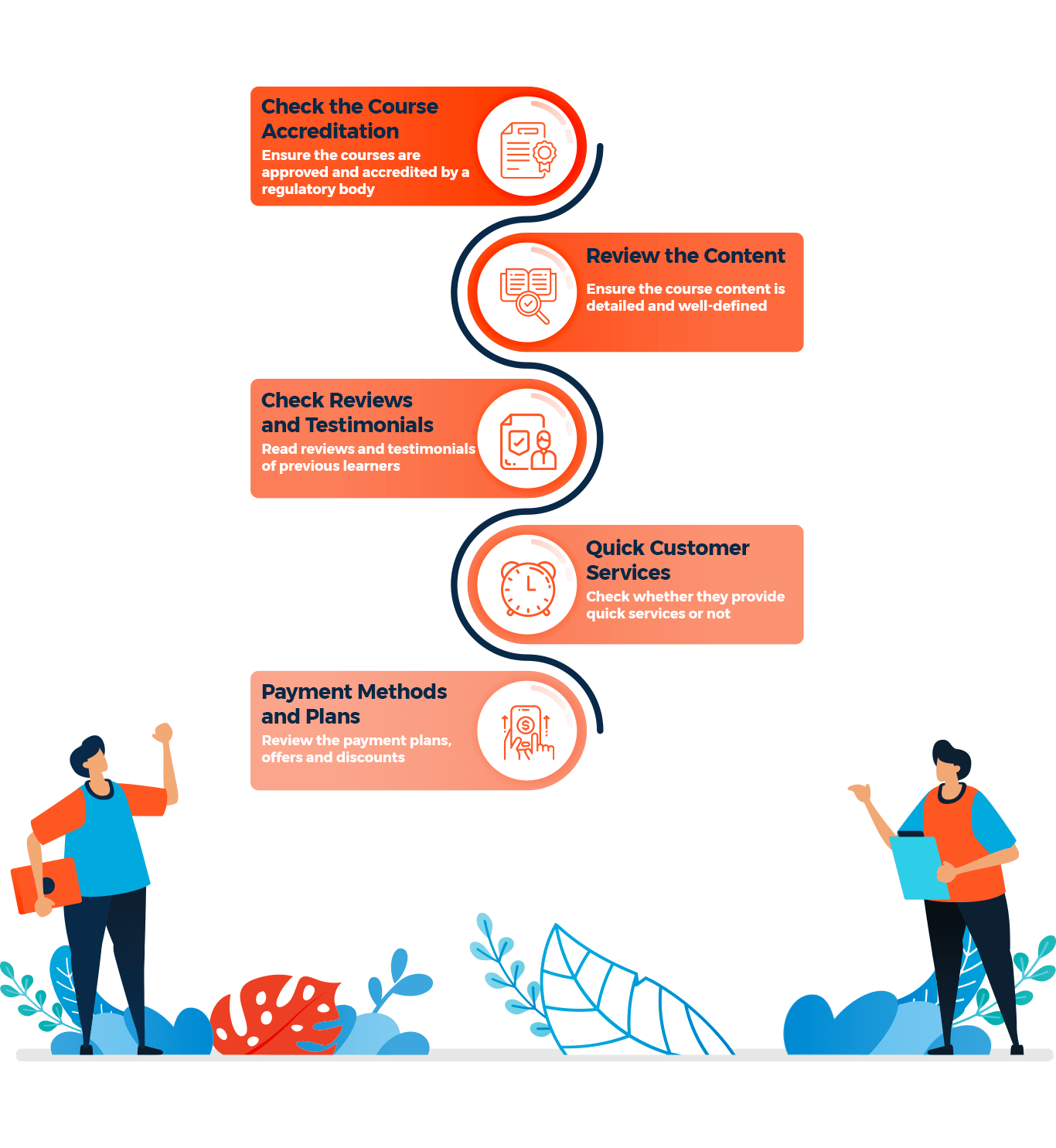Online courses have become increasingly popular and prevalent in the 2020s. No matter where you look, be it influencers, YouTubers or self-proclaimed entrepreneurs, everyone is offering some kind of online course. However, where there is a plethora of options, some are outright scams. This leads us to the question “How to know if Your Online Course is Legitimate”? The simplest and quickest answer would be to check the courses’ accreditation.
In this blog post, we are going to mention some essential factors in choosing a legitimate online course.
Here is how to identify one:

1. Check the Course Accreditation
The first and foremost way to verify the legitimacy of an online course is to check if it is accredited by a regulatory body. Accreditation ensures an institution meets quality standards and usually, the information is available on the website.
2. Review the Content
Another way to check the course’s authenticity is to go through its content. You may begin by checking course objectives and how much time it requires you to complete the course. If the course is detailed and well-explained, it is reassuring to know that the course is legitimate. This also indicates that the course providers prioritise their learners and therefore have designed the course carefully.
3. Check their Reviews and Testimonials
Most of the time, when we are shopping online, we always check the reviews and what customers are saying about the product. Well, do the same before enrolling on an online course. If the testimonials and reviews are positive and the learners are satisfied with the outcomes, then the course is authentic and vice versa.
4. Customer Services
Ensure that they are offering opportunities to cater to your course needs. This will help you understand the course material and make excellent progress. Not only that, ensure they are committed to providing instant customer support to cater to learners’ enquiries in a timely manner.
5. Payment Methods and Plans
Checking payment methods and plans is another great way to check a course’s legitimacy. There are many schools and online course providers that do not disclose their payment plans properly and probably have hidden charges. Always choose the course that displays their payment plans, offers and discounts on their website. Never go for the course providers that offer free features and require additional fees down the line.
Conclusion
In today’s digital world, many companies are offering online courses. However, most of them are scams and lure learners in only to charge them extra in the end. Therefore, it is imperative and you must check their courses’ legitimacy via numerous factors.
By following the factors we have mentioned above, such as checking for accreditation, reading reviews, and reviewing course content, you can make an informed decision about the legitimacy and quality of the course you intend and wish to enrol on.

